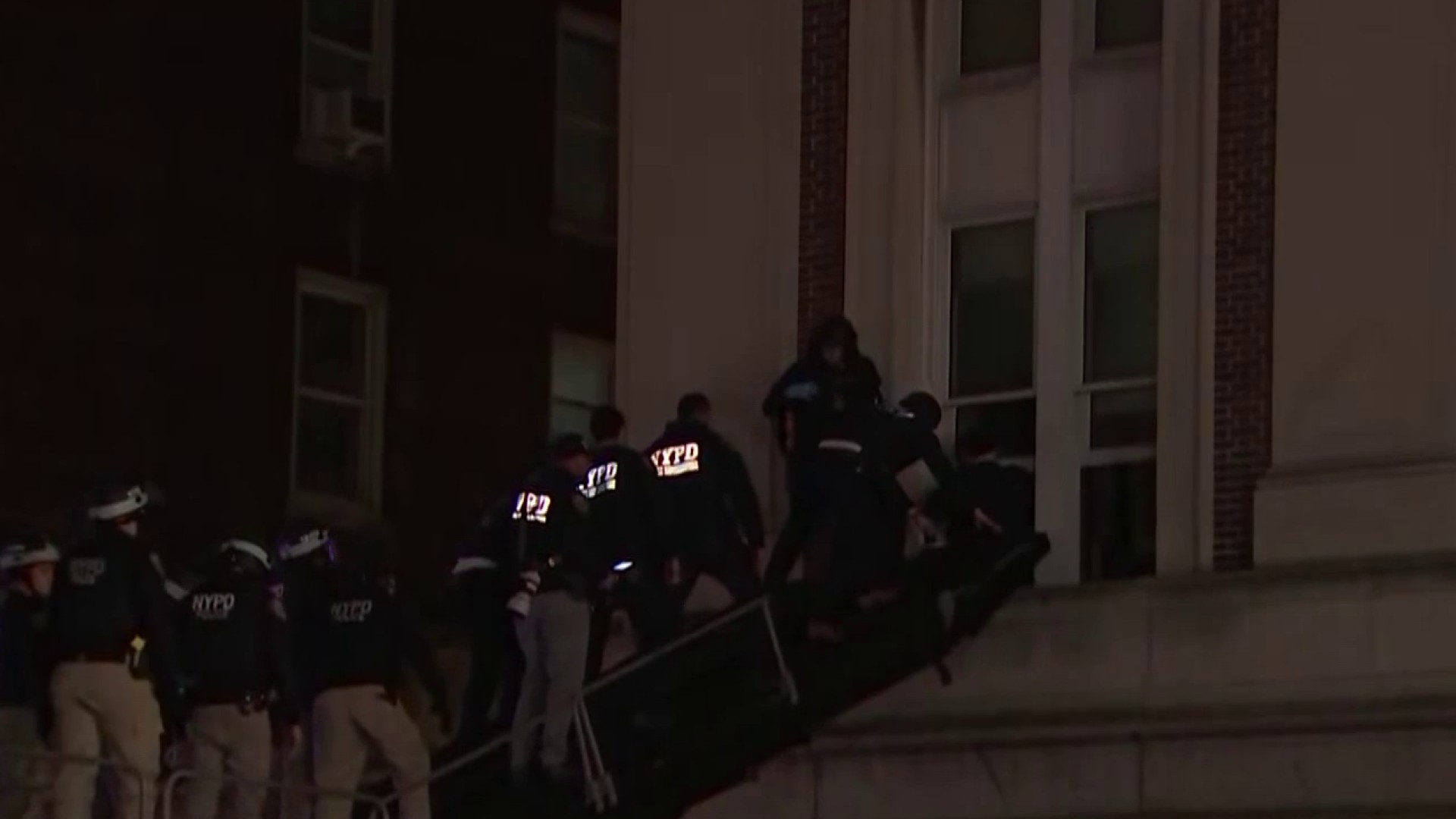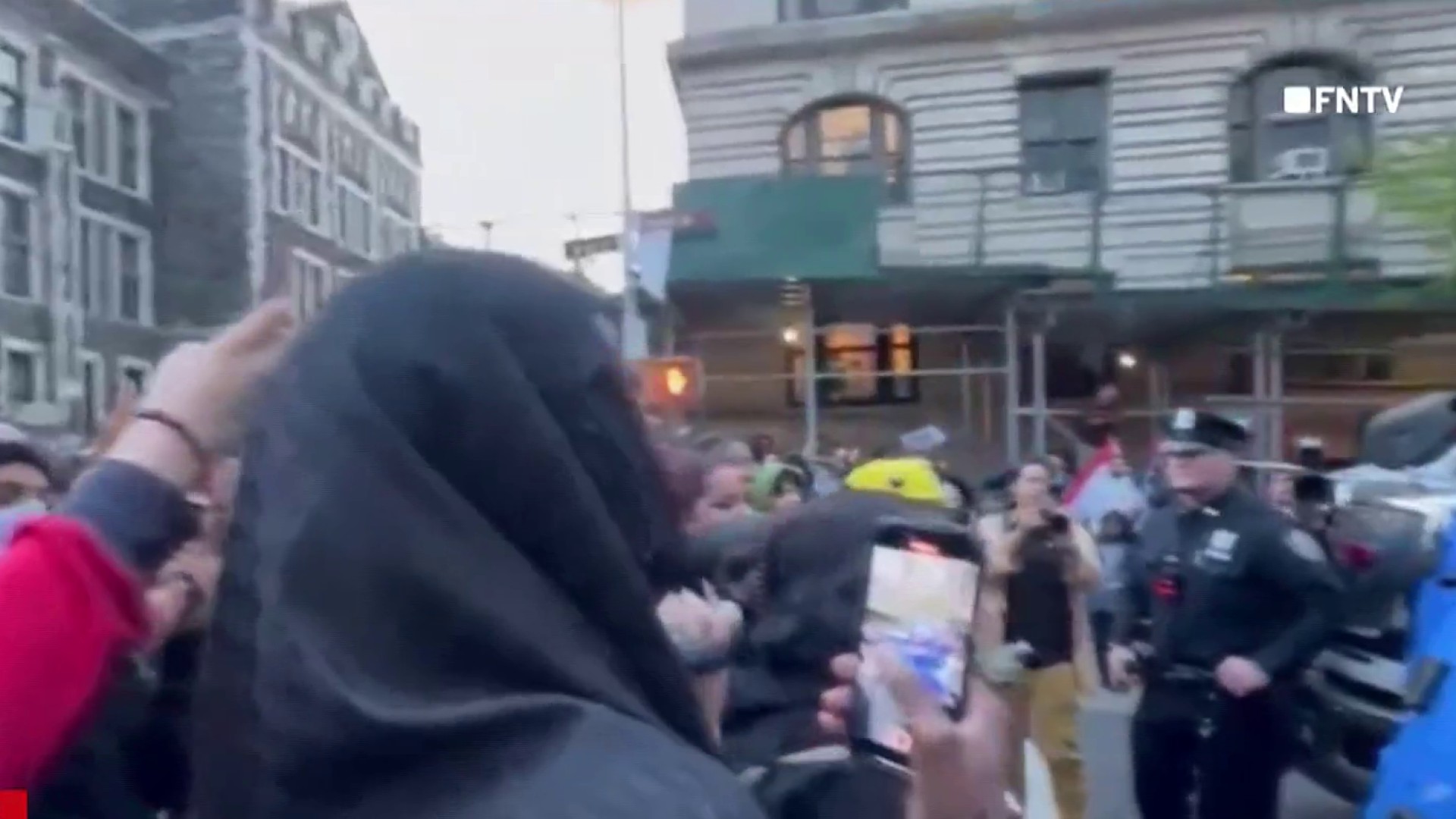Two New York City police officers who shot and killed a man inside his Bronx apartment may not face any disciplinary action.
The head of the NYPD's administrative trials has recommended no punishment for officers involved in the 2019 shooting death of Kawaski Trawick, according to a draft ruling obtained by THE CITY.
Trawick's interaction with the police lasted less than two minutes. Starting with a door knock, it ended with the 32-year-old Black man shot dead by a white NYPD officer in his own apartment, the killing caught on body camera and surveillance video.
An internal NYPD investigation found no wrongdoing on the part of the officer or his partner. The district attorney in the Bronx, where the shooting took place in 2019, declined to bring charges.
Get Tri-state area news and weather forecasts to your inbox. Sign up for NBC New York newsletters.
Fast forward four years after Trawick's death, a civilian agency tasked with oversight of the NYPD was pursuing a last-ditch attempt to get the department to discipline the officers, claiming the deadly shooting was not justified.
An administrative trial started in April to determine whether either violated department rules during the encounter.
The Civilian Complaint Review Board argued that Officer Brendan Thompson, who fired both his Taser and his handgun at Trawick, used an improper amount of force, and both he and his partner, Officer Herbert Davis, didn't promptly seek medical care for the dying man.
News
The NYPD judge said the case should be dismissed because the CCRB missed the deadline for filing department charges. The statue of limitations to file charges against the officers was two years, a deadline the CCRB missed by a handful of months.
"After delays and impediments by the NYPD to provide key evidence, those delays now being used as the reason to recommend no discipline is unjustifiable. Commissioner Caban can and must hold these officers accountable for misconduct - it’s what Kawaski’s family, New Yorkers, and officers who have not engaged in misconduct deserve from the NYPD,” NYC Council Speaker Adrienne Adams said Tuesday.
Trawick's family and community advocates have been vocal in their calls for the officers to be fired for the death of the Georgia native, who moved to New York City a few years before his death to pursue his dreams of dancing stardom.
“He was working toward ... getting himself to a place where he was known for what he loved to do,” said his mother, Ellen Trawick. “Not for being murdered by two police officers.”
Trawick's mother has said that the video of her son's death is too disturbing to watch again, and stepped out of the room when it was played during the first day of the departmental trial. The family's attorney said that the officers "failed to deescalate, they failed to isolate, they failed to communicate."
Trawick's father had said the officers never should have even entered his son's apartment.
"I saw those officers enter my son's home, murdered my son. They need to be arrested for that, they need to be held accountable," said Rickie Trawick. "Why those police officers went and took his life like that, I don't understand it."
The leadership of the Police Benevolent Association, the union representing patrol officers and which is paid for the officers' attorneys, called Trawick's death an “undeniable tragedy” that was being exploited by “anti-police activists.”
“The case was thoroughly investigated by both the Bronx district attorney and the NYPD’s Force Investigation Division, which found no evidence of wrongdoing by these police officers," PBA President Pat Lynch said in a statement. "CCRB is not claiming it has any new evidence that would change those findings."
On the night he died, Trawick had locked himself out of his apartment at a supportive housing facility in the Bronx for people experiencing issues including substance abuse or living with certain health conditions.
He called 911, falsely saying the building was on fire. Other people in the building made calls to 911 about him, complaining he was being disruptive.
The Fire Department responded first. Shortly before 11 p.m., firefighters got his door open without incident. Trawick, seen on surveillance camera footage carrying a knife and a stick, said goodbye to the firefighters, went inside and closed the door.
A few minutes later, the two police officers arrived at his door. As seen on surveillance video and Thompson's body camera footage, what followed was this: Davis, a 16-year veteran at the time, knocked and when the door moved ajar, pushed it open further, bringing Trawick into sight standing at his stove in his underwear with the knife and stick still in his hands.
The officers repeatedly told Trawick to put down the knife.
Trawick, annoyed, repeatedly asked the officers why they are there.
“I've got a knife because I'm cooking!” he said.
Trawick was standing still, muttering to himself, when Thompson abruptly fired his Taser, dropping him to the floor.
Screaming in pain and anger, Trawick rose, yelling at the officers to get out of his home.
As officers backed out of the apartment, Davis, who is Black, can be seen on the video briefly pushing his white partner's gun down, telling him, “Don't, don't, don't.”
A moment later, Trawick moved toward the officers, yelling, “I’m gonna kill you all!" while still holding the knife. Thompson fired four shots, killing him.
Thompson radioed for help and emergency medical technicians arrived within two minutes but couldn't help Trawick.
In the day after Trawick's death, senior NYPD officers said the shooting appeared to be justified, and that he had been “charging” the officers when he was shot. It wasn't until more than a year and a half later that the full video footage became public after a legal push from nonprofit groups.
In a report explaining her decision not to bring criminal charges, Bronx District Attorney Darcel Clark, who is Black, said that while Trawick's death was “profoundly tragic,” her office wouldn't be able to prove beyond a reasonable doubt that Thompson’s use of deadly force was unjustified.



